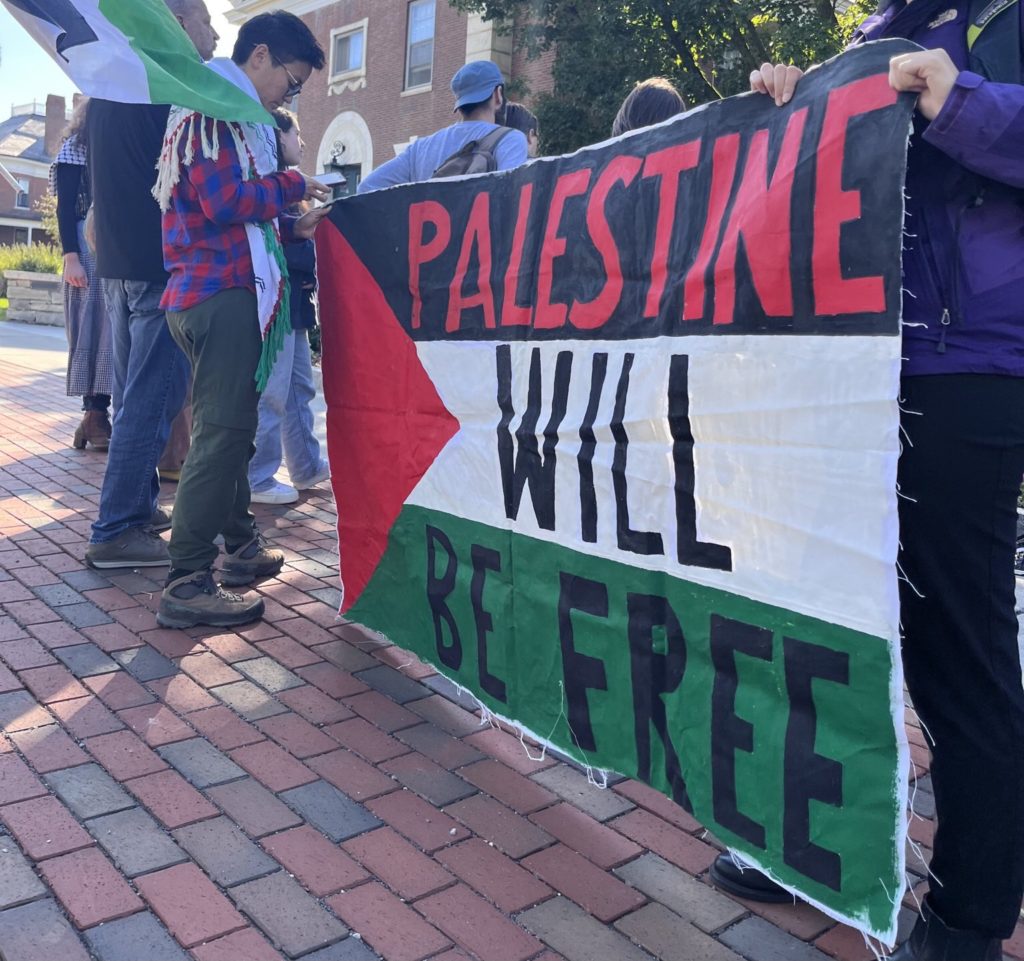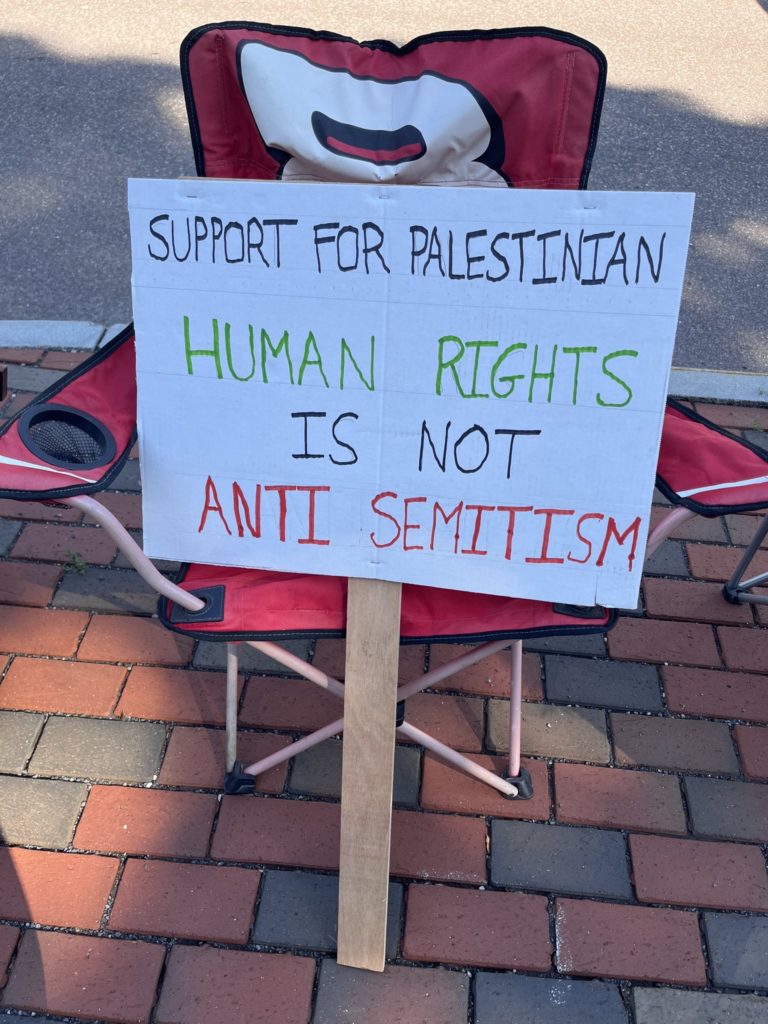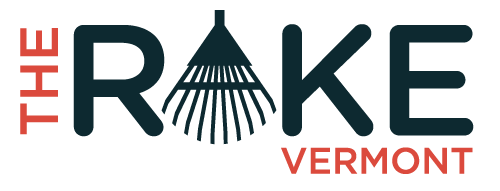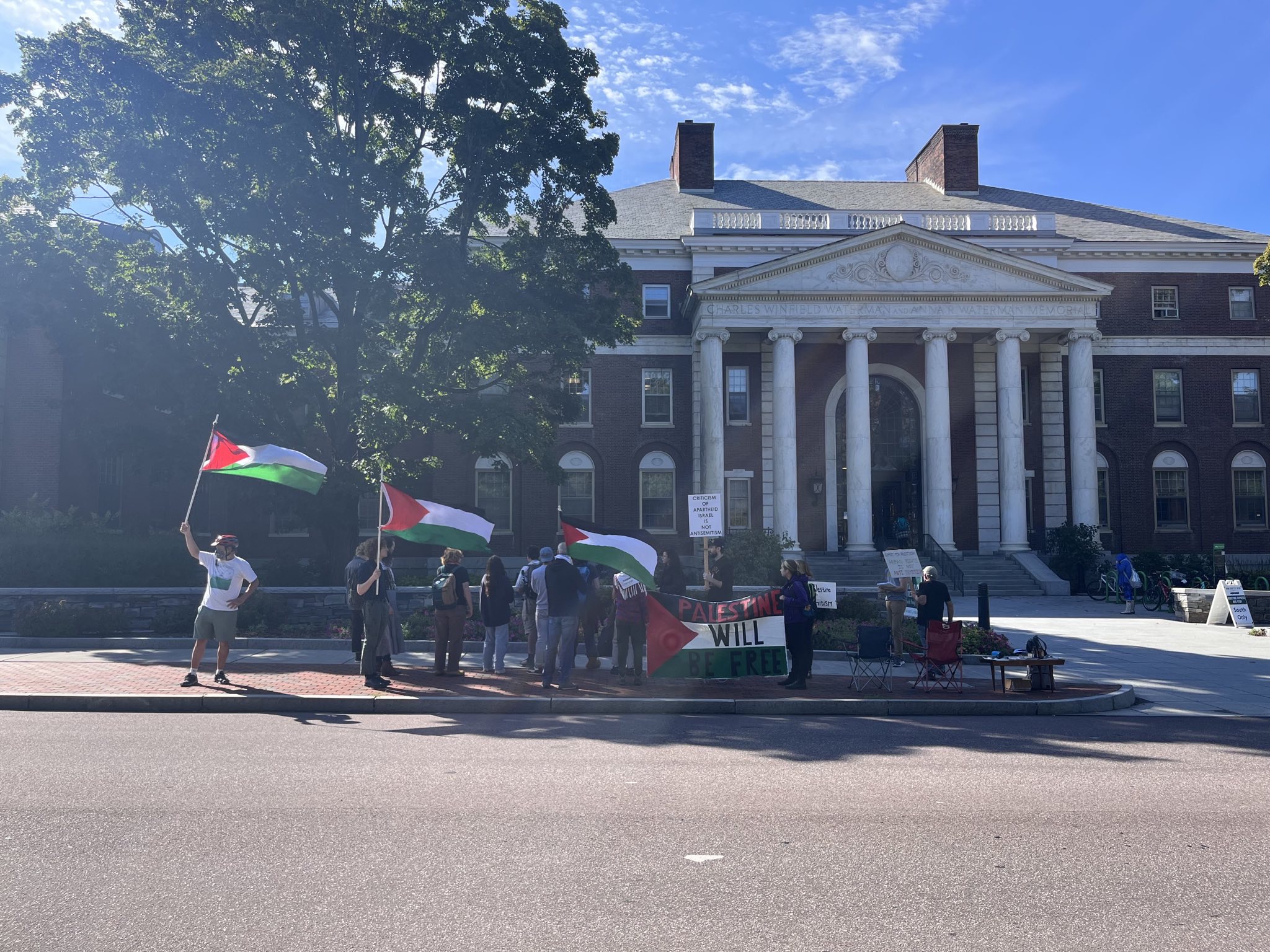After the U.S. Department of Education’s Office of Civil Rights recently opened an investigation alleging incidents of antisemitism at the University of Vermont, students and activists gathered in response, concerned that the face of the allegations are part of a larger attempt to advance efforts to silence solidarity for Palestine on campus.
The complaint, which was filed by the Louis D. Brandeis Center for Human Rights Under Law and Jewish On Campus, detailed alleged vandalism of UVM’s Hillel building, the exclusion of Jewish students supporting Israel from UVM Empowering Survivors (a support group not sanctioned by the university), and online harassment of Jewish students by a teaching assistant, according to VTDigger and The Vermont Cynic.
In response, UVM called into question the legitimacy of the investigation, claiming that it responded appropriately to these allegations and that the Office of Civil Rights had painted the UVM community in a “patently false light.”
The event’s organizers, Vermonters for Justice in Palestine (VTJP), were quick to note that many aspects of the complaint included problematic definitions of antisemitism that came from the International Holocaust Remembrance Alliance (IRHA).
The definition conflates Judaism with Zionism and falsely assumes that all Jewish people are Zionists, while also claiming the current State of Israel is the embodiment of self-determination for Jewish people around the world. The IRHA believes that opposing Zionists’ ability to settle on unceded Palestinian land is an aspect of antisemitism.
This stance has been widely renounced by Arab and Palestinian academics and pro-Palestine activists, along with countless other Jewish groups who do not consider Zionism to be a tenet of Judaism.

John Heermans, a member of VTJP, read a statement on behalf of the organization sharing their opposition to all antisemitism, while noting that these accusations through the Office of Civil Rights weaponize antisemitism in order to silence advocates for the Palestinian people.
“To be clear,” Heermans said, “VTJP is against all forms of discrimination: we believe that all forms of oppression, including antisemitism, are connected, and must be fought collectively in order to achieve peace and freedom for all people.”
VTJP is urging UVM President Suresh Garimella to reject the demands made by the complainants that UVM adopt the IHRA’s definition of antisemitism, which would include a statement that “Zionism is a key component of Jewish identity for many students at UVM.”
These demands do not accurately reflect the opinion of all Jewish students on campus, according to Jojo, a current Jewish UVM student. “It is harmful and saddening as a Jewish person myself to see so many people who don’t understand that criticizing a state that is actively committing genocide is nothing against our Jewish faith.”
Jojo believes that consistently framing the narrative as one of targeted antisemitism “completely erases the narrative of a call for liberation for Palestine by only centering the Jewish voices that are pro-Zionist.” She said that conflating antisemitism and antizionism silences another ethnic group: “There are no Palestinian voices here that are allowed to speak on this campus because every effort for Palestinian liberation is going to get attacked by [UVM] Hillel.”
VTJP is critical of how quickly the work is being done to embed a new definition of antisemitism in the public and policy spheres, and on campuses on a global level. This includes the work of Canary Mission, a pro-Israel and Zionist organization that targets pro-Palestine activists, including on campuses, with its “blacklist,” which compiles dossiers and tracks the movements and activities of those who speak out against Israel publicly. Canary Mission’s findings are also used by the United States and Israeli law enforcement to detain and deport Palestinian activists and advocates.
Another example of the strategy to threaten, silence or even criminalize anti-Israel voices includes the successful lobbying efforts of pro-Israel and Zionist groups against human rights watch groups that condemn the State of Israel. This includes recent claims by President Biden’s special envoy to combat antisemitism stating that the Amnesty International Report identifying Israel as an apartheid state were part of efforts to delegitimize Israel and “poison the atmosphere, particularly for Jewish students.”

Against this national and international backdrop, local Palestinian advocates know that more allegations and a coordinated strategy to silence their voices will continue. “[The complainants] are attempting to turn any whisper of criticism into a PR campaign that scares universities into adopting their highly-contested, widely-condemned definition of the word that is specifically designed to target advocacy for Palestine–not to keep Jews safe,” said Heermans.
Whether UVM’s administration will capitulate to the increased pressure from national Zionist and pro-Israel groups remains to be seen. UVM is being used as a battlefront for a longstanding, coordinated effort to suppress opposition to Israel and its human rights abuses, and it’s highly likely that those who demand liberation for Palestine will continue to be labeled as those who spread hate.
While some Jewish students at UVM promote Judaism within a nationalist framework, others like Jojo recognize Judaism’s international values, many of which were established in response to the Jewish experience of oppression. “I think that Jewish values should and are meant to promote the liberation of all people.”
Photos courtesy Vermonters for Justice in Palestine.
Matt Moore is a writer from Vermont. He is on the editorial collective of The Rake Vermont.



